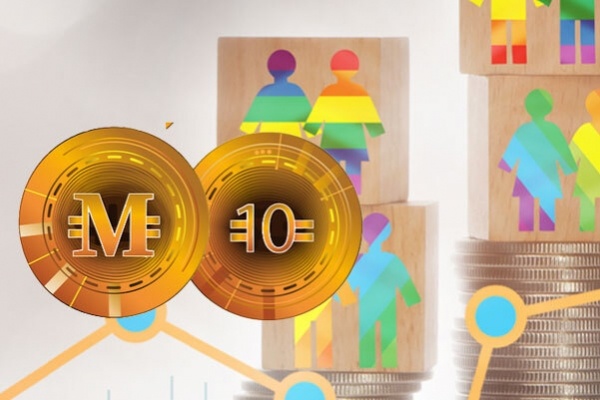Jan 26 (Thomson Reuters Foundation) – An attractive alternative investment or no better than a Ponzi scheme? Cryptocurrencies are controversial – challenging conventional financial wisdom and worrying regulatory authorities around the world.
But few recent launches of virtual currencies have provoked as much debate as the maricoin, which its founders billed as the world’s first LGBT+ cryptocurrency and rolled out for a pilot test in Madrid on Dec. 31.
Even its name, a play on words drawn from a homophobic insult in Spanish, has proved controversial.
With the maricoin set to start trading on major exchanges on Feb. 22, what are cryptocurrencies and just why has this particular debut made waves?
Why are cryptocurrencies contentious?
In contrast to traditional currencies, cryptocurrencies are not issued by any central bank or government and are operated privately. The best-known, bitcoin, was first traded in 2009, with its value jumping from just under 10 U.S. cents then to more than $34,000 today here.
Critics of digital currencies point to their volatility and say their use could undermine authorities’ control of global financial and monetary systems, increase systemic risk, fuel white-collar crime and hurt investors.
“Some of these coins have been used for money laundering (and) there are issues of tax reporting that often come up,” David Yermack, a finance professor at New York University’s Stern School of Business, told the Thomson Reuters Foundation.
“It’s at the very least inconvenient to do business with these coins if you’re trying to comply with the regular law,” he said.
However, the adoption of cryptocurrencies as an asset and as a payment vehicle has grown among younger investors here and in developing countries here, with advocates saying they are an effective hedge against hyperinflation and uncertainty.
And what about the controversy over maricoin?
Hundreds of social media users decried the Spanish cryptocurrency’s name, saying it was disrespectful towards the LGBT+ community as they drew parallels with the English homophobic slur “faggot”.
Others said such criticism was unwarranted, noting how the Spanish word “maricon” had been reappropriated by gay men.
“‘Maricon’ doesn’t work like ‘faggot’. It translates better as ‘queer’,” David Gonzalez, a 23-year-old student, said by phone from Madrid. “In Spain, gay guys say it to each other constantly.”
“By reappropriating a slur, we empower ourselves. It wouldn’t be the same if a straight person said it to me, of course, but this is an LGBTI initiative,” he added.
Maricoin co-founders Juan Belmonte and Francisco Alvarez said some people had misunderstood the choice of name.
“We want to resignify the insult. That’s intimately linked to what Pride means. And we’re not the first ones to do it,” said Alvarez, maricoin’s chief executive.
Critics also voiced opposition to the initiative’s aim to target LGBT+ people as users and cited the broader concerns about the riskiness of cryptocurrencies.
Can an LGBT+ cryptocurrency succeed?
More than 10,000 people have joined a waiting list seeking to buy premium maricoins before the currency starts trading, the founders have said.
Under their plans, the coin will be accepted as payment in businesses that have signed an anti-discrimination manifesto.
The global LGBT+ market is huge, with research by Swiss bank Credit Suisse suggesting it would rank as the world’s fourth-largest economy, behind Japan but ahead of Germany in terms of purchasing power.
But Yermack said the fact that potential maricoin users – LGBT+ people and their allies – constitute a minority group spread around different countries could make it harder for the virtual currency to gain traction.
“What you really need is a very large number of people to adapt the coin as quickly as possible,” he said.
A similar initiative launched in 2018 by social network Hornet created the LGBT Token cryptocurrency, but its founders decided in 2020 to refocus the project as a non-cryptocurrency payment wallet solely for the app’s users.
“Our realisation was that 99% of our users didn’t care whether it was crypto, they wanted it to be easy to use. They wanted a wallet, but they didn’t want to have to remember the keys,” said Hornet chief executive Cristoff Wittig.
“Crypto technology in itself didn’t create enough value for our users,” he said.
Wittig added, however, that he thought there was scope for an LGBT+ cryptocurrency such as maricoin to succeed.
“A decentralised technology like crypto is a perfect match, in principle, for a decentralised community like ours.”

